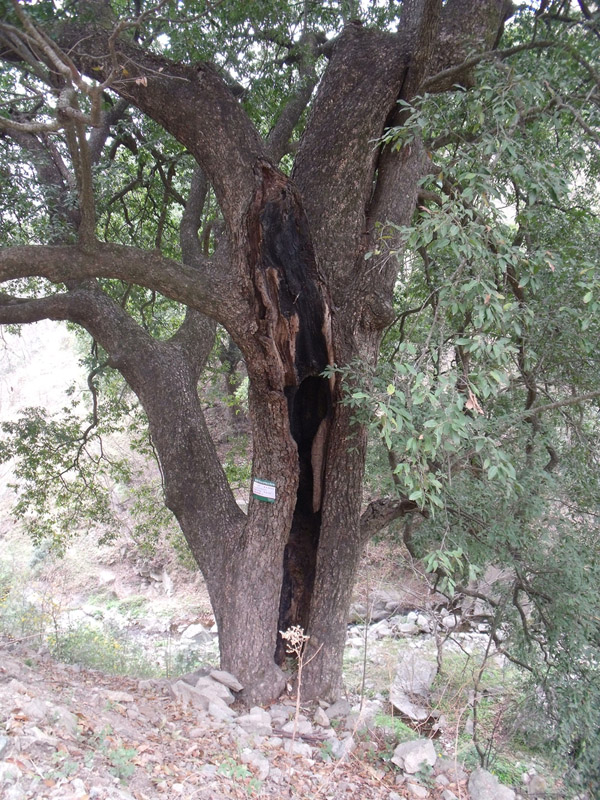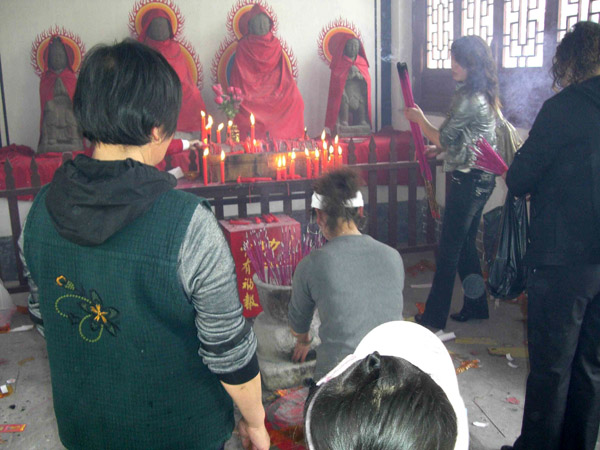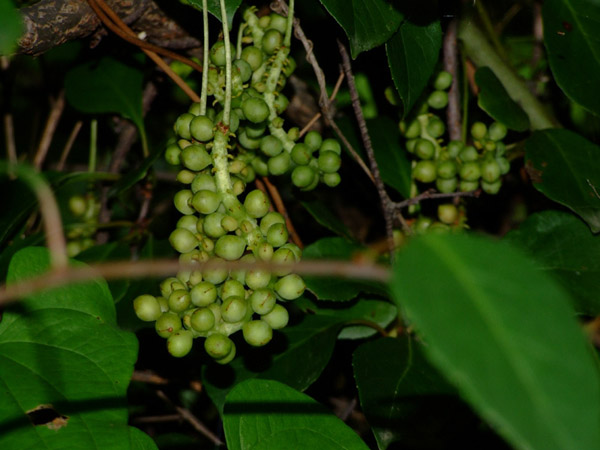The Sixth Original Writing Competition
Junior High School Group
Platinum Award
Written by Yang Mei,
Jiangkou Middle School, Ankang City, Shaanxi Province, China
Date: May, 2019
“A forest of ancient trees undefiled by the passage of men; From whence come the sound of bells in such mountainous wilds?” Those faraway bells toll for you, beckoning you to come to my hometown - the secluded ancient temple sanctuary of Miaowan. Miaowan is a small village in the shadow of the Qingling Mountains. You’ll be glad you came! The area is embraced in mists and basks in forested quietude.
An ancient, towering willow shades the entrance to the village, casting its blue-grey shadow all the way to the end of the cobble road. Beads of water from a misty rain and a pointillist patchwork of moss decorate the white walls capped with bluish-black tiles that line this road. Roof ridges here end in crescent-shaped eaves and lintels are decorated with engraved flowers. A walk through Miaowan takes you back in time to what it must have been like in the misty lanes of towns in Ming and Qing times. The townsfolk here rise early and retire not long after dark. The men tend cattle at sunrise, leading them into the fields for another day’s work, while the women, with infant children strapped to their backs, head to the river to wash clothes. The people here cling to the tradition of men farming and women sewing. The fast-paced development of the world outside seems to have had little effect on the people here.

“Miaowan, Miaowan! Temples are your natural claim to fame!” Here, there is a temple every ten or so kilometers, typically cloaked in blue-green smoke, giving an ethereal feel to each visit. If you want to dedicate incense, the Goddess Niang-Niang Temple is the place to burn your joss. You won’t be disappointed. This temple is spiritually efficacious. Countless people have prayed successfully here to the Creator Goddess Nüwa for a child. It is why the censer is nearly always enveloped in thick incense smoke.
When you step into the temple, the first thing you see is a lifelike image of an immortal atop the eaves. The black roof tiles in staggered rows are also quite eye catching. The lintels are hung with red sashes and the familiar bluish-green smoke hangs in the air. Stepping inside is like entering a strange and unfamiliar realm. Atop the altar table is a statue of the Bodhisattva. Although superficially similar to those you may have seen at other temples, this statue was carved from jade and is said to be around a century old. It remains today in the temple without a sign of its age. Over so many decades, the people of this simple and tranquil village have exhibited no untoward ambitions or avaricious intentions toward their oldest ‘resident’. No outsider has sought to smuggle her out either. There are several explanations posited for this. Firstly, the Bodhisattva sees all and nips any would-be scheme to take ‘her’ from the temple in the bud. Secondly, many feel that stealing ‘her’ would end only in personal calamity and misfortune. Whatever the reason, the result is clear for all to see. When visiting the Goddess Niang-Niang Temple, it is simple courtesy to send up a sincere prayer. Bring incense and a donation to the temple and ask Creator Goddess Nüwa sincerely to grant your wish for a child. She will certainly intervene on your behalf. My grandfather prayed to the goddess for a son, and my father was born. Isn’t that an odd coincidence? There are so many similar stories in this village of ours, justifying Goddess Niang-Niang Temple as a place of spiritual fulfilment and blessing.

It would be a shame if you visited Miaowan and didn’t try some of its signature culinary treats. Toon-scrambled eggs, chilled melde leaves, robustly fresh chanterelle soup, and tender, wild eagle fern are each worth a try. If you visit in summer, count yourself fortunate in having the chance to enjoy our family’s homemade magnolia-berry (omija) tea. We gather and wash the fresh berries before drying them in the sun for several days. The dried berries are steeped in piping hot water to make a delicious tea. Its flavor is milder flavor than that of fresh berries – sour with a hint of sweetness. The taste is actually quite similar to sour-plum soup. Enjoy a cup and feel the day’s labors melt pleasantly away.
If you leave our town without tasting Miaowan’s ‘fairy tofu’ it will be your loss. The complicated process involved in making this treat makes it truly a ‘food of the gods’. Its main ingredient is wild mulberry leaves hand-picked in nearby mountains. A brimming basketful is only enough to make one small loaf of precious fairy tofu. The fresh leaves are washed, crushed, strained, and filtered multiple times. The extracted liquid is then put into a container, left to cool, and then added to water. This water bath gives the ‘tofu’ its form while softening its astringent edge. Fairy tofu is best served chilled, paired with chili oil, topped with scallion, pepper, and garlic, and seasoned with just a pinch of salt and a few drops of sesame oil. Dig into a savory dish of green fairy tofu topped with a gleaming coat of crimson red. The tofu still has traces of crushed mulberry leaves, showing its natural origins and making it a deliciously natural treat. Sour and spicy notes first excite your palate before the slight bitterness of the fairy tofu tones the flavors down, subtly paving the way for this delightfully full and complex culinary experience. Fairy tofu has a pleasant bitterness that is reminiscent of spring-fed water. It evokes the ‘taste’ of the passage of time and fondly remembered friendships. Send the sultry heat of summer packing from your first, satisfying bite of fairy tofu.

If you are lucky, you may see one of Miaowan’s infrequent temple festivals. In my first festival experience, I came face-to-face with a black-faced figure with a long beard walking in grandiose strides. I stared dumbfounded at this larger-than-life image in front of me. I babbled incoherently, unable to engage at all. I was most interested in the old “Xiao Sheng”, wearing a donkey over his loins and gyrating energetically back and forth. His movements seemed to bring the donkey to life. Soon after, the sounds of gongs and drums grabbed everyone’s attention, but all I could see was the dense, dark mass of the crowd in front of me. The sounds reminded me of the sound of bells striking air. Could it be the start of the lion dance? I wondered. I pushed my way forward into the crowd, but still could only see the top of the lion dancing atop a wooden pole, its head being maneuvered by one of the lion dancers. The lion’s body was covered by a red blanket and its body and the legs of the dancers underneath all sported tassels. The lion would sometimes jump onto the wooden pole to dance, playfully wagging its rear end; sometimes cock its head and bat its eyes; and sometimes open its cavernous maw, seemingly ready to let out a roar. The red tassels danced playfully as well, seemingly in sync with the lively beat of the drums. The bell around its neck symbolized the lion’s melodious throat, which joined in the cacophony of spirited clapping, shouting, and other noises of the festival.

Nothing is more beautiful than hometown scenery - blue mountains, green waters, and idyllic vistas. Our many temples show our mysterious spiritual side; our temple festivals are clamorous and exciting; and our cuisine inspires a voracious appetite. Doesn’t knowing a bit about Miaowan, make you eager for more? I hope you will come to Miaowan to see it all for yourself; to share in our sublime scenery.
Reviewer 1
“Nothing is more beautiful than hometown scenery.” The author’s lovingly crafted description of Miaowan unfolds like a scroll painting, clearly and distinctly presenting the unique character and ambiance of the area.
Reviewer 2
The author’s well-chosen words give this essay depth and practiced refinement. Key points are targeted and then each is given careful literary treatment. The essay is well balanced, with key points well framed by the overall intent. This essay is remarkable for its concise wording. An exceptional effort!
